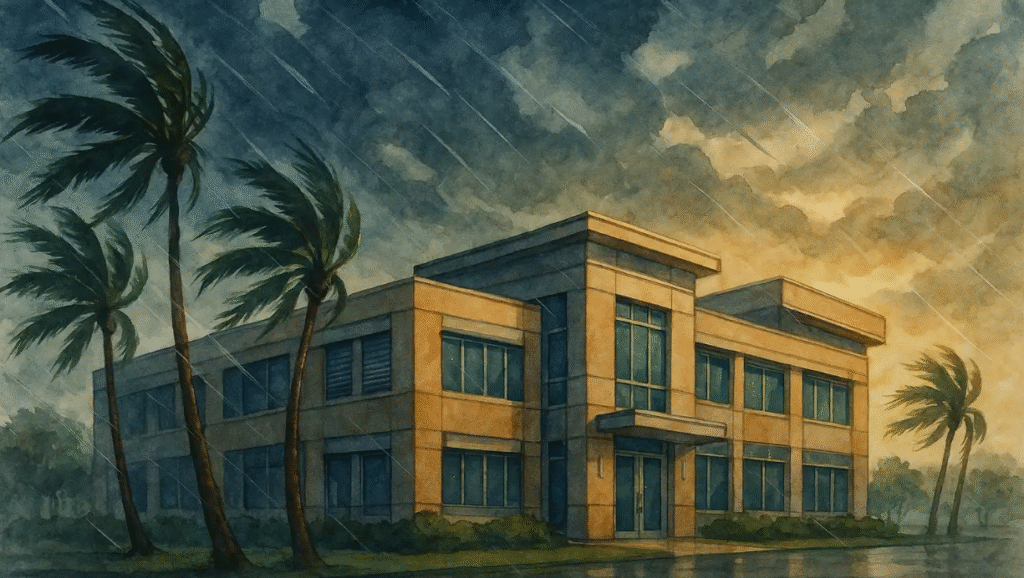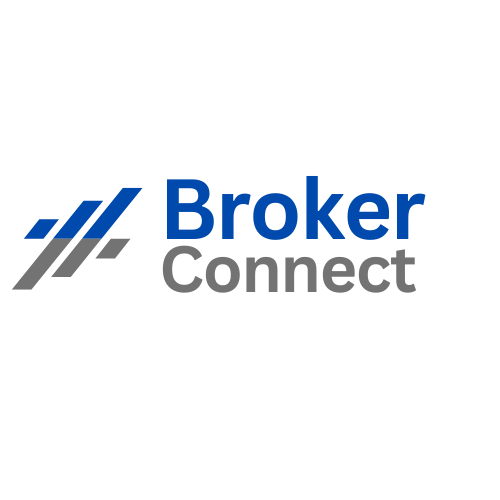An expert analysis of Florida's property insurance market challenges and actionable strategies for business owners to secure affordable coverage while maintaining adequate protection against natural disasters.
The cost of Florida property insurance is rising at a pace few business owners have ever witnessed. Double-digit—or even triple-digit—premium hikes, shrinking carrier options, and a relentless parade of severe storms have created a perfect storm for commercial policyholders. Below is a practical, data-backed guide to help you protect your balance sheet without sacrificing the coverage you need.
Understanding the Florida Property Insurance Crisis
Several forces are converging to drive the current upheaval:
- Record premium spikes. Commercial rates have jumped 40 % to well over 100 % in recent renewals, especially along the coast. According to Insurance Journal, some companies have faced even steeper increases.
- Carrier insolvencies. Since 2020, more than a dozen insurers have become insolvent or exited the state, dramatically reducing competition—data confirmed by the Florida Office of Insurance Regulation.
- Storm losses. Swiss Re reports Hurricane Ian alone generated up to $65 billion in insured losses, draining reserves and scaring reinsurers.
- Litigation pressures. Although legislative reforms are underway, Florida historically produced 75 % of the nation’s property insurance lawsuits while representing just 9 % of claims, according to the Insurance Information Institute.
As Mark Friedlander of the III notes, “Florida’s property insurance market is arguably the most challenging in the world.”
Why Premiums Keep Climbing
- 1. Catastrophe Exposure - Warmer oceans and changing weather patterns mean that storms are not only more frequent but also more intense. Every time a major hurricane makes landfall, the reinsurance costs that underpin all Florida property insurance contracts rise.
- 2. Reinsurance Pricing Power - Reinsurance rates for Florida cat coverage jumped 30 % to 50 % in mid-2023. Insurers pass those costs to policyholders, which is why many businesses felt shocking renewal quotes this year.
- 3. Legacy Litigation - Even though Assignment-of-Benefits abuses have been curtailed, the tail from past lawsuits continues to buffet insurer financials. Logan McFaddin of APCIA cautions that relief may take 18–24 months to filter through the system.
Cost-Saving Strategies for Florida Property Insurance
These five steps can help blunt the impact of rising business insurance costs:
- Commission a Professional Risk Assessment. Document roof age, building construction, wind ratings, and flood elevation. A detailed report arms your agent with hard evidence to negotiate lower rates.
- Harden Your Building. Wind mitigation measures—hurricane shutters, reinforced garage doors, and roof-to-wall straps—often unlock sizable credits. The “Safer, Stronger Florida Home” program, while aimed at residents, showcases techniques that work just as well for commercial structures.
- Adjust Your Deductible Strategy. Moving from a 2 % to a 5 % hurricane deductible can lower annual premiums substantially. Ensure your cash reserves can handle the higher out-of-pocket exposure.
- Bundle and Shop Aggressively. An independent agent with deep Florida expertise can market your account to standard carriers and surplus-lines insurers. Bundling property with liability or auto may produce multi-policy discounts.
- Know the Safety Net. If private markets decline your risk, Citizens Property Insurance Corporation serves as a backstop. Coverage may be pricier and less flexible, but it keeps the lights on after a loss.
“The legislative reforms passed in 2022 and 2023 were a critical first step to stabilize the market.” — Logan McFaddin, APCIA
What New Legislation Means for Your Bottom Line
House Bill 837 eliminated one-way attorney fees and banned new Assignment-of-Benefits agreements. Insurers expect lower legal costs and, over time, more capital entering Florida. While you may not see an immediate premium drop, reduced volatility could mean more predictable budgeting within two years.
Frequently Asked Questions
- Why are commercial rates so high? A unique blend of frequent hurricanes, elevated reinsurance pricing, and a historically litigious environment inflates Florida property insurance premiums.
- What is the difference between a standard and hurricane deductible? A standard deductible is a flat dollar amount. A hurricane deductible is a percentage (2 %–5 %) of the insured value and applies only to damage from named storms.
- Will new laws cut my costs this year? Not likely. Industry analysts anticipate a lag of 18–24 months before reforms translate into broad-based rate relief.
- What if no private carrier will insure me? Citizens Property Insurance Corporation, the state-backed insurer of last resort, remains available when all private options have been exhausted.
Next Steps for Florida Business Owners
Rising costs may be unavoidable, but crippling premiums are not. By proactively mitigating risk, fine-tuning deductibles, and partnering with a knowledgeable Florida broker, you can secure the Florida property insurance you need—at a price your business can absorb.
Ready to discuss your coverage strategy? Contact Broker Connect LLC today.


